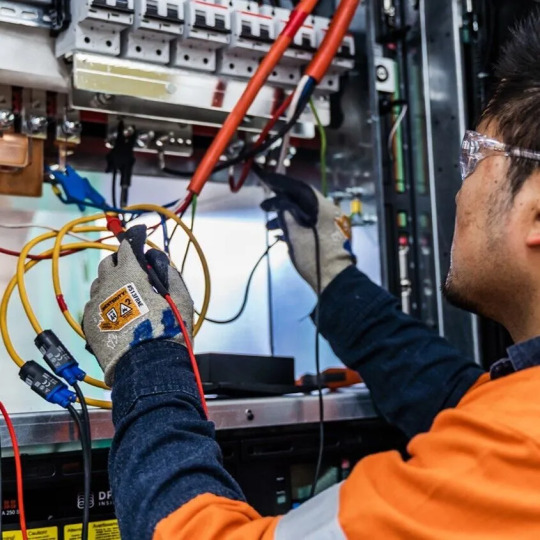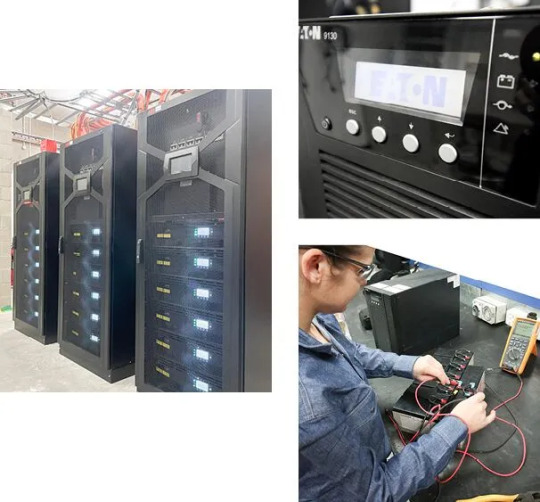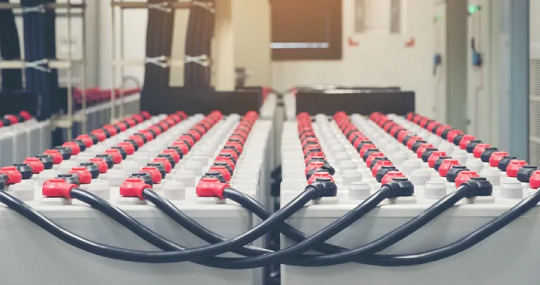Reliable power supply uptime solutions to run your business.
Don't wanna be here? Send us removal request.
Text
Does Your Business Need Power Protection?

In the fast-paced world of modern business, the dependency on continuous power has become more critical than ever. Whether you're running a tech startup in Sydney or a manufacturing plant in Melbourne, a stable power supply is essential. But have you ever stopped to consider the implications of power interruptions? This article explores why your business needs power protection and how it can safeguard your operations.
Consequences of Power Interruptions
Power interruptions can have severe consequences for businesses. Even a short blackout can result in data loss, equipment damage, and significant financial losses. For example, in the financial sector, a power outage can disrupt trading activities and lead to missed opportunities. In healthcare, power interruptions can jeopardise patient care, especially in critical care units reliant on continuous power for life-support systems.
The Business Case for Power Protection
The financial impact of power interruptions can be significant. According to a report by the Australian Energy Market Operator (AEMO), power outages cost Australian businesses billions of dollars annually. These costs arise from lost productivity, equipment damage, and potential penalties for failing to meet contractual obligations.
Investing in power protection can help mitigate these costs by ensuring that your business can continue to operate smoothly during power interruptions. For instance, a UPS system can prevent data loss and equipment damage, saving your business thousands of dollars in recovery costs.
Enhancing Business Reputation
Reliability is a key factor in building and maintaining a good business reputation. Power interruptions can damage your reputation by causing delays and disruptions that affect your customers. For example, if you run an online retail business, a power outage could prevent customers from making purchases, leading to lost sales and dissatisfied customers.
By investing in power protection, you can demonstrate your commitment to reliability and customer satisfaction. This can help build trust with your customers and enhance your reputation as a dependable business.
Regulatory Compliance
In some industries, maintaining power continuity is not just a business necessity but also a regulatory requirement. For example, healthcare facilities must comply with regulations that mandate continuous power for life-support systems and other critical equipment. Failing to comply with these regulations can result in hefty fines and legal liabilities.
Investing in power protection can help ensure that your business meets these regulatory requirements, avoiding potential penalties and legal issues. This is particularly important in industries where compliance is critical to maintaining your licence to operate.
Choosing the Right Power Protection Solution

The first step in choosing the right power protection solution is to assess your business's needs. Consider the type of equipment you use, the potential impact of power interruptions on your operations, and any regulatory requirements you must comply with. This will help you determine the level of protection you need and the most appropriate solutions for your business.
Evaluating Costs
While the initial cost of power protection solutions can be significant, it is essential to consider the long-term benefits. For example, a UPS system may have a higher upfront cost than a surge protector, but it provides a more comprehensive level of protection that can save your business money in the long run. Additionally, consider the potential costs of not investing in power protection, such as lost productivity, equipment damage, and compliance penalties.
Implementing Power Protection
Once you have chosen the right power protection solution, the next step is to install and maintain it. Proper installation is crucial to ensure that your system functions correctly and provides the necessary level of protection. This may involve working with a qualified electrician or a power protection specialist.
Regular maintenance is also essential to keep your power protection systems in good working order. This includes routine inspections, testing, and servicing to ensure that your systems are ready to respond to power interruptions. Neglecting maintenance can lead to system failures and leave your business vulnerable to power disruptions.
Training and Awareness
Training your staff on the importance of power protection and how to use the systems correctly is another critical aspect of implementation. This includes educating employees on the potential risks of power interruptions, how to respond during an outage, and the procedures for maintaining and testing the power protection systems.
Raising awareness about the importance of power protection can also help ensure that everyone in your business understands the value of these systems and is committed to maintaining them. This can help create a culture of reliability and preparedness that supports your business's long-term success.
Conclusion
Power protection is not just a technical necessity but a strategic investment that can help safeguard your business's operations, reputation, and financial stability. Whether you are running a small office or a large industrial facility, ensuring that you have the right power protection solutions in place can help you navigate the challenges of power interruptions and keep your business running smoothly.
EPT is one of the industry leaders delivering Critical Power and UPS Solutions in Perth, Western Australia, and Across Australia.
0 notes
Text
Uninterrupted Power Supply Vs Generator

In a world that relies heavily on continuous power for both business and personal activities, understanding the differences between Uninterrupted Power Supply (UPS) systems and generators is crucial. This article delves into the key features, benefits, and limitations of these two critical power solutions to help you make informed decisions.
We will explore how each system functions, their applications, and why choosing the right one is vital for maintaining productivity and ensuring safety.
What is an Uninterrupted Power Supply (UPS)?
An Uninterrupted Power Supply (UPS) is a device that provides instant power to electronic equipment during a power outage or voltage fluctuation. It ensures that sensitive electronics like computers, servers, and medical equipment remain operational without interruption, even if the main power supply fails. The primary components of a UPS include a battery, an inverter, and a control system.
How Does a UPS Work?

A UPS system continuously monitors the incoming power supply from the grid. When it detects a power loss or an abnormal voltage level, it instantly switches to battery power, providing a seamless transition that keeps connected devices running without any downtime. This instantaneous response is critical in environments where even a momentary loss of power can lead to data loss or equipment damage.
Types of UPS Systems
There are three main types of UPS systems:
Standby (Offline) UPS: This is the most basic type, providing backup power during outages and filtering minor power surges. It is suitable for home use and small office setups.
Line-Interactive UPS: This system regulates voltage fluctuations more effectively and is ideal for environments with frequent power issues. It is commonly used in small to medium-sized businesses.
Online (Double-Conversion) UPS: The most advanced type, providing continuous power by converting incoming AC to DC and back to AC. It offers the highest level of protection against all power disturbances and is essential for critical applications like data centres and hospitals.
What is a Generator?
A generator is a device that converts mechanical energy into electrical energy, typically using diesel, petrol, or natural gas as fuel. It provides a reliable source of power during extended outages, making it an essential tool for homes, businesses, and industries that cannot afford prolonged power interruptions.
How Does a Generator Work?
Generators operate by using an internal combustion engine to turn a rotor inside an electromagnetic field, creating electricity. When the main power supply fails, the generator starts up and begins producing electricity, which is then distributed to the required circuits or devices. Unlike a UPS, which provides instant power, generators typically have a short delay before they start supplying electricity.
Types of Generators
Generators can be broadly classified into two categories:
Portable Generators: These are small, movable units ideal for temporary power needs, such as during camping trips or short-term outages at home or in small businesses. They are relatively easy to operate and maintain.
Standby Generators: These are permanent installations that automatically start during a power outage. They are designed to power larger homes, commercial buildings, or industrial facilities, providing a continuous power supply until the main power is restored.
Key Differences Between UPS and Generators
One of the most significant differences between a UPS and a generator is the time it takes to deliver power during an outage. A UPS provides immediate power with no delay, making it ideal for protecting sensitive electronic equipment. In contrast, generators usually take a few seconds to start up, which can be too long for devices that require continuous power.
Duration of Power Supply
A UPS is typically designed to provide short-term power, enough to keep critical systems running for a few minutes to several hours, depending on the battery capacity. This allows time to save work, shut down equipment safely, or switch to a backup generator. Generators, on the other hand, can supply power for extended periods, from a few hours to several days, as long as they have sufficient fuel.
Maintenance and Operation
UPS systems require minimal maintenance compared to generators. They need regular battery checks and occasional replacement, but their solid-state design means there are no moving parts to wear out. Generators, however, require more frequent maintenance, including fuel checks, oil changes, and engine servicing to ensure reliable operation.
Cost Considerations
The initial cost of a UPS is generally lower than that of a generator. However, the cost can increase significantly for larger UPS systems designed for industrial or data centre use. Generators have a higher upfront cost and ongoing expenses for fuel, maintenance, and potential installation requirements, such as soundproofing and exhaust management.
Environmental Impact
UPS systems are more environmentally friendly compared to generators, which rely on fossil fuels and emit greenhouse gases. Advanced UPS systems with high-efficiency batteries can provide clean, renewable energy solutions, making them a better choice for environmentally conscious businesses.
Conclusion
Understanding the differences between Uninterrupted Power Supply systems and generators is crucial for making informed decisions about backup power solutions. Each system has its unique advantages and is suited to different applications.
By carefully considering your power needs, budget, and environmental impact, you can choose the right solution to ensure continuous power for your home, business, or critical infrastructure.
EPT is one of the industry leaders delivering Critical Power and UPS Solutions in Perth, Western Australia, and Across Australia.
0 notes
Text
Powering Business Success: Transforming Energy Solutions with EPT

In today's fast-paced business environment, optimising energy consumption and implementing reliable power solutions are vital for sustainable growth. Rising energy costs and environmental concerns necessitate innovative strategies that enhance efficiency and reduce carbon footprint.
This comprehensive guide explores the significance of power solutions and energy efficiency for businesses, providing valuable insights and practical tips for transforming energy consumption.
Drawing inspiration from the expertise of EPT, a leading provider of power solutions in Australia (ept.com.au), this article delves into the latest trends and technologies revolutionising the way businesses harness and manage energy.
The Importance of Efficient Power Solutions
Efficient power solutions form the foundation of sustainable business practices. By optimising energy consumption, businesses can significantly reduce costs, enhance productivity, and contribute to a greener future.
Reliable power solutions ensure uninterrupted operations, safeguard critical equipment, and minimise downtime, enabling businesses to maintain a competitive edge in today's demanding marketplace.
EPT specialises in delivering customised power solutions tailored to meet the unique requirements of various industries. With their expertise, businesses can benefit from intelligent power management systems, renewable energy integration, and proactive maintenance strategies.
These solutions empower businesses to reduce energy waste, lower operational expenses, and achieve long-term sustainability goals.
Embracing Renewable Energy Sources

In an era of increasing environmental consciousness, businesses are recognizing the significance of transitioning to renewable energy sources. The utilisation of solar power, wind energy, and other renewable alternatives not only reduces reliance on traditional fossil fuels but also provides substantial long-term cost savings.
EPT's holistic approach to energy solutions encompasses renewable energy integration. By leveraging advanced technologies such as solar panels and wind turbines, businesses can generate clean energy on-site, reducing their dependence on the grid and potentially achieving energy independence.
EPT's expertise in designing and implementing renewable energy systems ensures seamless integration and maximum efficiency, enabling businesses to make a positive impact on the environment while optimising energy costs.
Smart Energy Management Systems
Effective energy management is crucial for businesses seeking to streamline operations and minimise energy waste. Smart energy management systems offer innovative solutions to monitor, analyse, and optimise energy consumption, empowering businesses to make informed decisions regarding their energy usage.
EPT's cutting-edge power solutions incorporate intelligent energy management systems that enable businesses to track and control energy usage in real-time.
Through advanced analytics, businesses can identify areas of inefficiency, implement energy-saving measures, and improve overall operational performance.
These systems also provide valuable data insights, allowing businesses to forecast energy demands, optimise load distribution, and proactively address potential issues before they impact productivity.
Future-proofing Energy Solutions

As technology advances and energy requirements evolve, businesses must adopt future-proof energy solutions to remain competitive. EPT's forward-thinking approach ensures that businesses stay at the forefront of energy innovation, mitigating the risks associated with outdated power infrastructure.
By partnering with EPT, businesses can access state-of-the-art power solutions that are scalable, adaptable, and designed to meet the demands of the future.
From energy storage solutions to grid modernization initiatives, EPT offers a comprehensive range of services aimed at future-proofing energy infrastructure. By investing in these solutions, businesses can enhance their resilience, optimise energy consumption, and position themselves as industry leaders in a rapidly evolving landscape.
Power Solutions for Specific Industries
Different industries have unique energy requirements and challenges. EPT understands these complexities and offers tailored power solutions to meet the specific needs of various sectors, including manufacturing, healthcare, data centres, and commercial buildings.
For manufacturing industries, EPT's power solutions ensure uninterrupted production processes, minimise downtime, and optimise energy consumption. In the healthcare sector, EPT provides reliable power backup systems to safeguard critical medical equipment and maintain uninterrupted patient care.
Data centres benefit from EPT's energy-efficient solutions that optimise cooling systems, maximise uptime, and reduce energy costs. In commercial buildings, EPT offers smart energy management systems that improve energy efficiency, reduce carbon footprint, and enhance tenant comfort.
Conclusion
Efficient power solutions and energy management are pivotal for businesses to achieve sustainable growth while reducing their environmental impact.
With EPT's expertise in providing customised power solutions, businesses can embrace renewable energy sources, implement smart energy management systems, and future-proof their energy infrastructure.
By optimising energy consumption, organisations can unlock significant cost savings, enhance productivity, and contribute to a greener future.
To navigate the complex world of power solutions and energy efficiency, businesses can rely on the knowledge and experience of EPT, a trusted partner in revolutionising energy solutions for the modern business landscape.
Need help with your business’ power / energy solutions needs? Contact EPT today and one of our friendly experts will reach out to you to assist.
0 notes
Text
Lithium vs. VRLA Batteries for Uninterruptible Power Supply: Which One Fits Your Needs Best?

Power outages are a common occurrence, but for businesses, they can be a major setback. Uninterruptible Power Supply (UPS) systems that provide backup power when the main supply fails -also known as power protection are therefore, crucial in ensuring continuous operation. However, UPS systems are only as good as the battery they utilise. The two main battery options, lithium and Valve Regulated Lead Acid (VRLA) batteries, have their pros and cons. This blog post aims to provide an overview of both battery types, their advantages, disadvantages, and help ensure you make an informed decision when choosing between the two.
Lithium Batteries for UPS
Lithium batteries are known for their high energy density, which means they can store more energy in a smaller space. They also have a longer lifespan than VRLA batteries and can be charged faster. They're commonly used in applications where space is an issue, such as in data centres, racks, and cabinets. However, they're also more expensive, and maintenance and replacement can be complex. Additionally, there's a risk of thermal runaway events, which can occur when a lithium battery overheats, leading to a chain reaction that can cause an explosion. Industries that commonly use lithium batteries for UPS include data centres, military, aerospace, and healthcare.
VRLA Batteries for UPS
VRLA batteries are low maintenance, have a long lifespan of up to 15 years, and can perform well under extreme temperatures. They can discharge at high rates and maintain a long discharge period, making them ideal for critical applications that require reliably renewable energy. However, they have a lower energy density than lithium batteries, meaning they're not as efficient at storing energy in a small space. They also charge slower than lithium batteries. VRLA batteries are commonly used in healthcare, manufacturing, and education.
Managing Thermal Runaway Events

Thermal runaway events occur when lithium batteries overheat. In contrast to lithium batteries, VRLA batteries produce hydrogen and oxygen as a byproduct during operation. Hydrogen can accumulate in the presence of an ignition source, leading to an explosion. Both batteries require safety procedures, but lithium batteries' thermal runaway events are more significant and can pose risks. VRLA batteries are less susceptible to thermal runaway events, but proper safety measures should still be in place. It's essential to select the appropriate battery type based on your application to mitigate risk.
Choosing the Right Battery Type for Your UPS

It's crucial to consider battery size, power demands, cost, maintenance requirements, and safety when choosing between lithium and VRLA batteries for your UPS applications. Depending on your application, one battery type may be a better fit than the other. For instance, if space is an issue, lithium batteries are a better option than VRLA batteries. Real-world examples of companies that have implemented lithium and VRLA batteries for their UPS needs include data centres, manufacturing plants, and hospitals.
Conclusion
Choosing the right battery type for your UPS system requires careful consideration. Both lithium and VRLA batteries have their advantages and disadvantages, and selecting the right option depends on your application's needs. You must consider critical factors like cost, energy density, and maintenance requirements, but safety should be the top priority to avoid any significant risks. By understanding the differences between lithium and VRLA batteries, and properly implementing safety procedures, businesses and organisations can ensure uninterrupted power supply in their operations.
Need help with your business’ power / energy solutions needs? Contact EPT today and one of our friendly experts will reach out to you to assist.
#VLRA Batteries#Lithium Batteries#Uninterruptible Power Supply#UPS#Power Solutions#Power Protection#Energy Solutions
1 note
·
View note